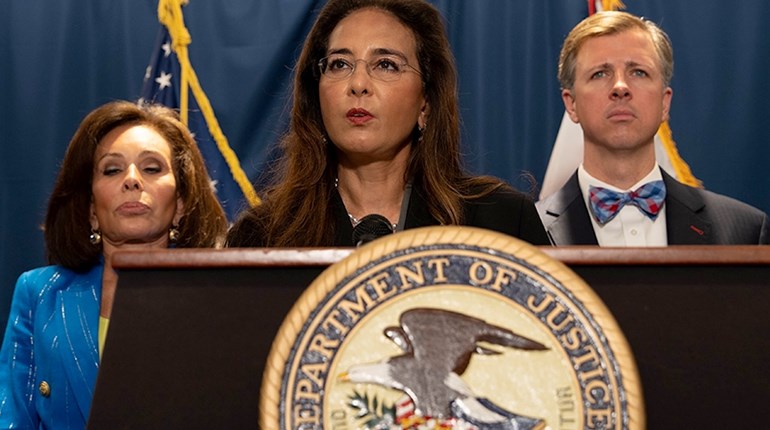
In a 2-1 ruling, the Ninth U.S. Circuit Court of Appeals, in part, reversed a lower court ruling that denied a preliminary injunction in a legal challenge to a California law that barred 18-21-year-old adults from buying semi-automatic, centerfire rifles. While the decision upheld some aspects of the lower court’s ruling, the reversal of the near complete ban of semi-automatic, centerfire rifles for 18-21-year-olds is significant. If this decision stands, the lower court will be required to undergo “further proceedings consistent with this opinion.”
“America would not exist without the heroism of the young adults who fought and died in our revolutionary army,” begins the opinion. “Today we reaffirm that our Constitution still protects the right that enabled their sacrifice: the right of young adults to keep and bear arms.”
This decision was written by Judge Ryan D. Nelson, a judge former President Donald J. Trump (R) appointed to the court. In all, Trump appointed 10 judges to the Ninth U.S. Circuit Court of Appeals.
When I interviewed former President Trump in the Oval Office, he showed he is well aware his judicial nominees mattered when he said, “We could have over 300 judges appointed to the federal bench by the end of my first term. I was given a large batch to fill—as many as a hundred openings—by President Obama because he wasn’t focused on nominating judges. A lot of people think this has been one of our greatest accomplishments. The Democrats want to put activists on the bench. We just want judges who will rule according to the law—the Constitution.”
The decision comes at a time when then U.S. Supreme Court is writing the opinion for New York State Rifle & Pistol Association v. Bruen, a case from an NRA affiliate that challenges New York’s “may-issue” licensing regime.
Judge Nelson also wrote that the tradition of young adults keeping and bearing arms is “deep-rooted in English law and custom.” Indeed, it is.
The decision reversed the denial of a preliminary injunction by U.S. District Judge M. James Lorenz in San Diego, an appointee of former President Bill Clinton (D). A successful request for preliminary injunction would have temporarily suspended the challenged law while the court considers the ultimate decision on the case.
This California law was passed, and signed by California Gov. Gavin Newsom (D), in 2019. In this case, California argued it needed the age restriction on this fundamental right because it claimed more young adults commit violent crimes and because those under 21 aren’t as mature as those over 21 years old. Of course, these California politicians didn’t try to change the state’s definition of what constitutes a legal adult. They instead just went after a particular right they disfavor.
Judge Kenneth K. Lee joined Judge Nelson’s ruling, but also wrote separately: “If California can deny the Second Amendment right to young adults based on their group’s disproportionate involvement in violent crimes, then the government can deny that right—as well as other rights—to other groups.”
Judge Nelson also wrote in his opinion that “because the Second Amendment historically protected the right of young adults to possess firearms, the district court abused its discretion in finding no burden on Second Amendment rights. As to the long gun regulation, the district court properly applied intermediate scrutiny, and did not abuse its discretion in finding the law likely to survive. But semiautomatic rifles are nearly totally banned. Thus, the district court erred in applying intermediate scrutiny, rather than strict scrutiny. And even under intermediate scrutiny, the district court erred in finding the law likely to survive. Finally, the district court also abused its discretion in finding that there was no irreparable harm and that the public interest favored declining to issue an injunction.”
As this was being written, a spokesman for California Attorney General Rob Bonta (D) made a public statement that his office is reviewing the decision. In the Ninth Circuit, after the three-judge panel publishes its decision, unless an extension for time has been granted, the losing party has 14 days to file a petition for rehearing or rehearing en banc. If granted, the case will be reconsidered by a panel of 11 judges, consisting of the Chief Judge of the Ninth Circuit, along with 10 other judges randomly selected from the 27 active judges of the Ninth.


































